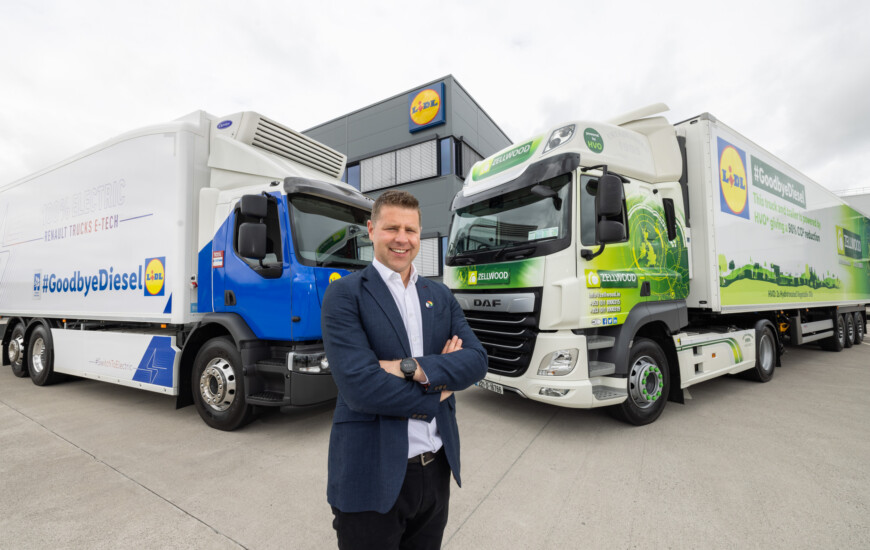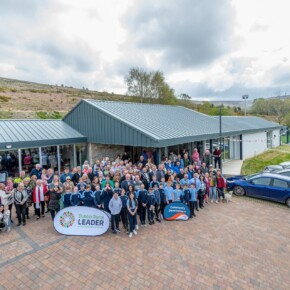Lidl rollout first electrical truck and HVO into logistics fleet
Gary Ibbotson 21 Jun 2022
Lidl Ireland today announced the rollout of the first electrical truck and Hydrogenated Vegetable Oil (HVO) Heavy Goods Vehicle (HGV) into the retailer’s logistics fleet.
The pilot scheme will see the sustainably powered vehicles join Lidl’s logistic fleet at the retailer’s Newbridge Regional Distribution Centre (RDC), commencing the retailer’s transition from fossil fuel commercial vehicles to more environmentally friendly vehicles.
The rollout is part of Lidl’s goal on becoming a carbon neutral business by 2025, alongside the ongoing journey to a 46% reduction in its operational emissions by 2030.
Commenting on the launch of the new vehicles into Lidl’s logistics fleet, Robert Ryan, Chief Operating Officer, Lidl Ireland & Northern Ireland said: “At Lidl we take our role in society seriously and strive to go above and beyond to make a positive difference, delivering real change through innovation and investment.
“As a leading retailer it is our responsibility to not only offer the best service and price for our customers, suppliers, and communities, but to protect the environment and build a successful, sustainable future.
“We are delighted to be the first retailer in Ireland to incorporate positive change by use of these environmentally friendly haulage trucks into our logistics fleet.
“Not only does it accelerate our journey to cleaner roads, but in turn with the soaring cost of fossil fuels like diesel it will keep prices down for our customers.
“We are looking forward to the journey ahead to scale up adaption across our entire fleet aligning to our sustainable environmental commitments and goals.”
The Hydrogenated Vegetable Oil (HVO) vehicle, is currently part of the fleet and will reduce emissions by 90% per trip by using 100% renewable fuel produced by the hydrotreatment of vegetable oil that create a fuel product with the same chemical structure as diesel.
The sustainably fuelled truck is estimated to reduce emissions in the order of 121.75t carbon dioxide equivalents (tCO2e) in a full year’s deliveries and will also see benefits such as the reduction of particulates and NOx (Noxious diesel emissions) which are hazardous emissions that naturally occur from the use of fossil fuels in vehicles.











